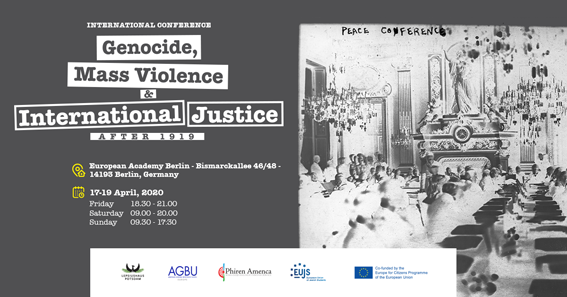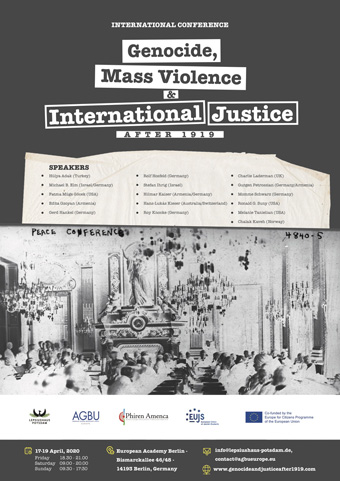
INTERNATIONAL CONFERENCE IN BERLIN
April 17-19, 2020
The years 1919 and 1920 were turning points in European history: Europe was reeling from the mass atrocities of World War I, including the century's first major genocide. How did Europe react to this trauma?
The Armenian General Benevolent Union (AGBU Europe), the Lepsiushaus, the European Union of Jewish Students (EUJS) and Phiren Amenca are pleased to invite you to an international conference in Berlin supported by the Europe for Citizens Programme of the European Union.
The conference will examine the growth of two contrasting historical developments which emerged after the signature of the Treaty of Versailles in the summer 1919. One movement that gathered momentum advocated for peaceful international solutions and justice and for the
rescue of the victims, especially those of the Armenian Genocide and other mass atrocities. On the other hand, a opposite movement set the ideological foundations of the worst atrocities the century was yet to experience.
The conference will explore how these constrating movements were affected by the atrocities of World War I and by the Treaties that ended the war, and what part they eventually played in political thinking in Europe.
The 3-day conference will gather prominent international scholars in four panels dedicated to the rise of humanitarian movements, the origins of international justice, post-Versailles Europe as well as to remembrance and transnational justice in the 20th and 21st century.
This conference is part of a European Remembrance project to explore European history from a new perspective, taking into account the long-term effects of the mass crimes of World War I and the heritage of the 1915 genocide in Europe.
To download the full programme in pdf, please click HERE.
|
|





